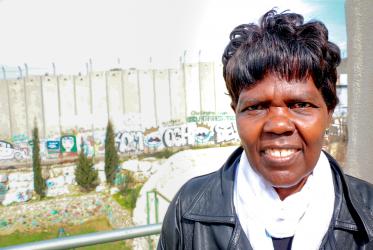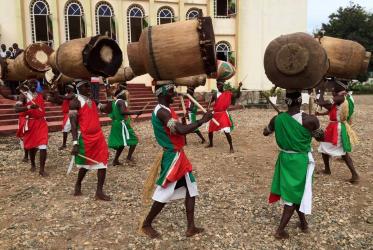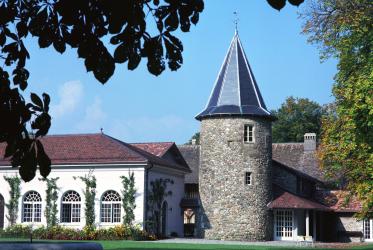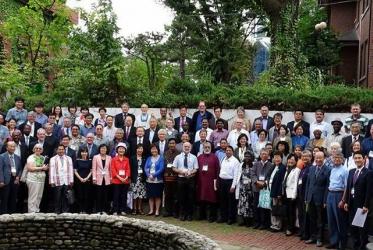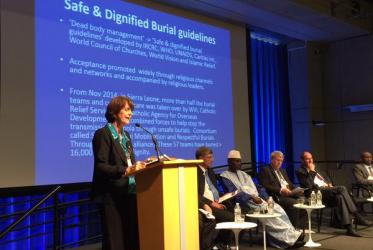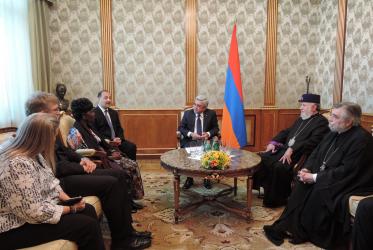Displaying 361 - 380 of 468
18 April 2016
Water is a gift, and a right for all, says WCC moderator
14 March 2016
Calls for peace in Burundi grow louder
10 March 2016
WCC solidarity visit to Burundi
02 March 2016
Voices of faith speaking to voices of fear
03 February 2016
WCC Executive Committee works toward a future of peace and justice
19 November 2015
Common prayer in Geneva responds to acts of violence
16 November 2015
WCC Executive Committee convenes to review ecumenical progress
13 November 2015
WCC leaders meet President Serzh Sargsyan
11 June 2015

